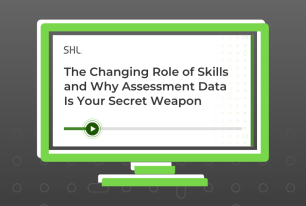When Silence Can Kill: Lessons from the UK’s National Health Service
Learn how cultural influences from western ideals might be hindering your organization’s advancement when it comes to inclusion.
Share
In the midst of a global pandemic, the biggest movement towards racial justice in modern times has taken center stage. The relationship between COVID-19 and racial justice is particularly evident in the healthcare sector. In the UK’s National Health Service (NHS) around 1 in 5 workers are POC (people of color), a figure many organizations are striving to achieve. However more than half of NHS deaths due to COVID are also POC, forcing the UK government to conduct an official investigation.
An influencing factor in the government investigation was “systemic racism”. With the exemplary hard work and dedication, our NHS has shown recently it is difficult to accept that racism is a contributing factor to these deaths. The investigation discloses how POC were less likely to speak up when they felt unsafe to work, indicating that while there is some diversity in the workforce -- inclusion efforts are failing. What could be preventing people from speaking out in such a high stakes situation?
Part of the answer lies in shared behavioral characteristics of employees who are POC, and how those characteristics manifest in the workplace. Cross-cultural research shows that many employees who are POC originate from cultures where self-perceptions are very different from the western world. Psychologists describe western cultures as individualistic, emphasizing personal freedom, achievement, the importance of social status, factors that help an individual stand out. Individuals are primed to express their own feelings, preferences, and ideas in pursuit of positive experiences for themselves. Within western workplaces these behaviors are encouraged and rewarded, if you do not naturally exhibit these then you are often urged to develop thinking and behaving in this way.
Cross-cultural research shows that many employees who are POC originate from cultures where self-perceptions are very different from the western world.
By contrast, in collectivist cultures, self-meaning comes from the embeddedness of individuals in a larger group. Of great importance are social relationships, a shared way of life, and maintaining the status quo. Actions seen to disrupt the group are restrained to maintain in-group solidarity. Behavior is derived from one’s role in different social contexts and the perception of other’s reactions. Conformity is encouraged, and individuals are discouraged from standing out. Therefore, when in crisis situations emotional responses focus on maintaining interpersonal harmony -- speaking out will be difficult. If this is the case, then how can we foster inclusion to create appropriate conditions to elicit the views of POC?
According to Harvard business school professor Amy Edmonson, psychological safety is a belief that one will not be punished or humiliated for speaking up with ideas, questions, concerns, or mistakes. Psychological safety is present when colleagues trust and respect each other and feel able, even obligated, to be candid. This can be realized if the right culture is set up where ideas, information, and mistakes are shared freely. Edmonson proposes that failure to speak up can lead to devastating, even life-threatening consequences, especially in healthcare settings; exactly what we have seen with the NHS.
Having POC from cultures where speaking out is not practiced and placing them in an environment where it is difficult to express concerns is a dangerous combination. This situation is not unique to the NHS - most workplaces could do better when it comes to understanding the cultural backgrounds of their employees who are POC and creating a safe and inclusive environment to ensure they feel heard. The NHS has had to act fast to deal with the situation, and we can all learn from the actions taken.
- Ensure that POC are represented in decision making. A key step at the NHS was when a group of POC doctors proactively came forward to offer their experience, knowledge, and cultural intelligence in shaping how the NHS deals with the COVID mortality rate. Look at your decision-making committees, are they representative of your working population?
- Consider reverse mentoring. Sir Simon Stevens, Chief Executive of NHS England, has reverse mentoring from Habib Naqvi, Deputy Director of the WRES (Workforce Race Equality Standard). Instead of liaising with those in leadership positions about progression, here learning is from those who have valuable lived experiences.
- Rethink reward systems and recognition. Think more broadly about the behaviors that are reinforced through rewards so that they are not only based on what is accepted in an individualistic society, such as assertiveness or individual contributions. Balance this with team awards and recognition. Satya Nadella’s success as CEO of Microsoft has been linked to collectivist ideals based on harmonious cooperation, helping to overcome divisive rivalries with fellow tech giants Apple and Google.
Think more broadly about the behaviors that are reinforced through rewards so that they are not only based on what is accepted in an individualistic society.
- Offering safe channels of communication. The “who shouts the loudest” approach is outdated… set up conditions where POC feel comfortable raising concerns and offering their perspectives. The NHS is working with local Freedom to Speak up Guardians, supporting workers to speak up, ensuring those who speak up are thanked and the issues they raise are responded to. The overall goal is to ensure that people feel empowered to raise their concerns safely.
- Engage with POC to offer tailored interventions. After engagement with Filipino workers across the NHS a tailored counseling service has been offered. Tagalog-speaking specialist counselors are on hand to support staff who have experienced bereavement, or who need to discuss anxiety or emotional issues experienced as a result of the coronavirus pandemic.
The NHS exemplifies that organizations looking to create diversity and inclusion programs need to learn from their employees who are POC, understand their barriers to gather appropriate information, and ensure that they feel valued and appreciated for being themselves. This should be the goal for all organizations who are lucky enough to have POC representation in their workforce. This is your opportunity – and now is the time to capitalize on it.









